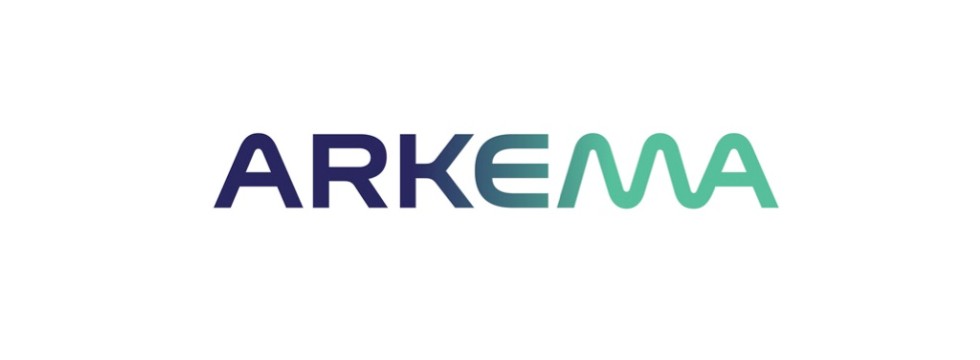Arkema Reinforces Its Commitment Towards Sustainability

In line with the Paris Agreement, Arkema will reduce its emissions by 46% by 2030. Arkema has announced that it has set new climate and sustainability targets, in line with the expectations of the Paris Agreement to contain global warming to 1.5°C above pre-industrial levels by the end of the century. Through a Science Based Target approach, the company aims to reduce its scope 1, 2 and 3 emissions by 46% by 2030.
Scope 1 and Scope 2 emissions will be reduced through the decarbonisation and energy-efficiency improvements of Arkema’s industrial activities. For Scope 3 emissions, on the other hand, the company will focus on reducing its most emissions activities.
“As a responsible manufacturer, Arkema is strongly mobilized to address the major societal challenge of decarbonization. With this new ambitious climate plan, the Group is taking a new step forward in its action for the fight against global warming. In particular, our cutting-edge expertise and innovation benefit our partners and customers in their own quest for sustainable performance, and we act on a daily basis to limit our carbon footprint” has stated Luc Benoit-Cattin, the executive vice-president for Industry and CSR at Arkema.
Scope 1 and Scope 2 greenhouse gas emissions
To achieve its target for Scope 1 and 2 GHG, Arkema will rely in particular on its energy consumption reduction programme implemented since 2012, that already improved energy efficiency by 15%. The company is now trying to further raise it to 25% by 2030.
The Arkema Group had already reduced by more than half its greenhouse gas emissions over the past ten years. In line with its commitment to a 1.5° C SBT trajectory, Arkema now aims to limit its Scope 1 and Scope 2 emissions to 2 million tons of CO 2 equivalent in 2030, a 46% reduction compared to the 3.7 million tons emitted in 20192.
Arkema will then focus on accelerating the decarbonisation of its energy sources through long-term commitments to renewable energy procurement and by working with its partners to reduce the carbon footprint of purchased steam. For its own steam production, the company will turn to alternative fuels or the electrification of its boilers. The reduction is also based on a shift towards less emissive manufacturing processes and product ranges, as well as on the enhancement of emission capturing and treatment. In addition, it will set its internal carbon price at €100 per ton of CO2.
Scope 3 emissions
Arkema also intends to reduce its Scope 33 emissions by 46% and achieve 85 million tons of CO 2 equivalent in 2030 compared to the 158 million tons emitted in 2019. In order to do so, the company is taking action in the most emissive categories both upstream and downstream.
Arkema is engaged in a pro-climate dialog with its suppliers and encourages them to define SBT targets for their Scopes 1 and 2 before 2025. Moreover, it will reduce the activities in the most emissive fluorogas applications targeted by the Kyoto Protocol and develop a new generation of fluoro gases (HFOs) for high value-added activities.
In addition, Arkema will increase the investments contributing to sustainability that are expected to reach €400 million by 2030 and which will be included in the Group's recurring capital expenditure envelope.
Scope 1 and Scope 2 emissions will be reduced through the decarbonisation and energy-efficiency improvements of Arkema’s industrial activities. For Scope 3 emissions, on the other hand, the company will focus on reducing its most emissions activities.
“As a responsible manufacturer, Arkema is strongly mobilized to address the major societal challenge of decarbonization. With this new ambitious climate plan, the Group is taking a new step forward in its action for the fight against global warming. In particular, our cutting-edge expertise and innovation benefit our partners and customers in their own quest for sustainable performance, and we act on a daily basis to limit our carbon footprint” has stated Luc Benoit-Cattin, the executive vice-president for Industry and CSR at Arkema.
Scope 1 and Scope 2 greenhouse gas emissions
To achieve its target for Scope 1 and 2 GHG, Arkema will rely in particular on its energy consumption reduction programme implemented since 2012, that already improved energy efficiency by 15%. The company is now trying to further raise it to 25% by 2030.
The Arkema Group had already reduced by more than half its greenhouse gas emissions over the past ten years. In line with its commitment to a 1.5° C SBT trajectory, Arkema now aims to limit its Scope 1 and Scope 2 emissions to 2 million tons of CO 2 equivalent in 2030, a 46% reduction compared to the 3.7 million tons emitted in 20192.
Arkema will then focus on accelerating the decarbonisation of its energy sources through long-term commitments to renewable energy procurement and by working with its partners to reduce the carbon footprint of purchased steam. For its own steam production, the company will turn to alternative fuels or the electrification of its boilers. The reduction is also based on a shift towards less emissive manufacturing processes and product ranges, as well as on the enhancement of emission capturing and treatment. In addition, it will set its internal carbon price at €100 per ton of CO2.
Scope 3 emissions
Arkema also intends to reduce its Scope 33 emissions by 46% and achieve 85 million tons of CO 2 equivalent in 2030 compared to the 158 million tons emitted in 2019. In order to do so, the company is taking action in the most emissive categories both upstream and downstream.
Arkema is engaged in a pro-climate dialog with its suppliers and encourages them to define SBT targets for their Scopes 1 and 2 before 2025. Moreover, it will reduce the activities in the most emissive fluorogas applications targeted by the Kyoto Protocol and develop a new generation of fluoro gases (HFOs) for high value-added activities.
In addition, Arkema will increase the investments contributing to sustainability that are expected to reach €400 million by 2030 and which will be included in the Group's recurring capital expenditure envelope.





